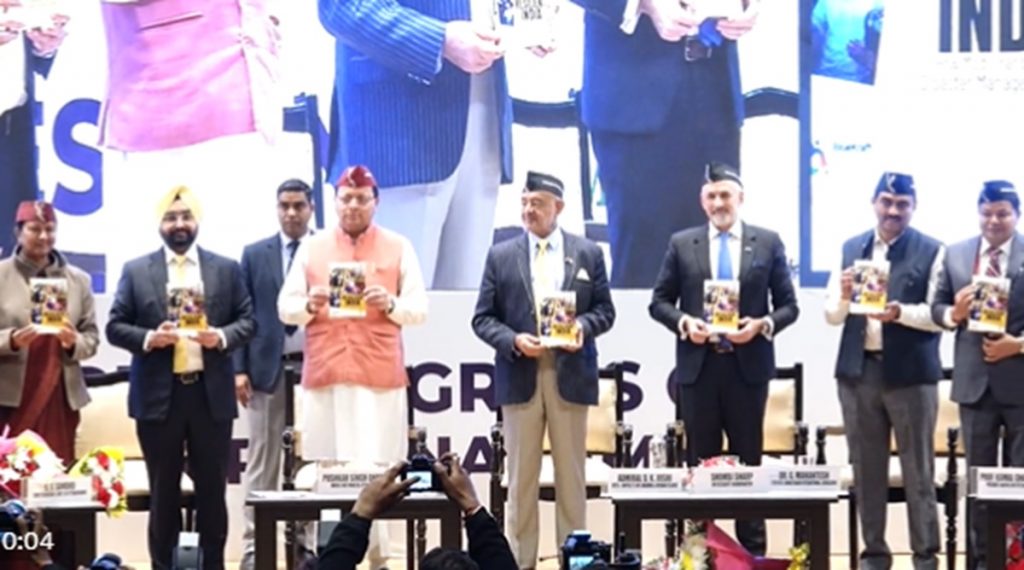New Delhi: Uttarakhand Chief Minister Pushkar Singh Dhami on Tuesday unveiled a book titled ‘Resilient India’, which encapsulates Prime Minister Narendra Modi’s efforts & visionary leadership in bringing about a ‘paradigm shift’ in India’s disaster management.
The book, ‘RESILIENT INDIA: How Modi Transformed India’s Disaster Management Paradigm’, was released by Uttarakhand CM at the sixth World Congress on Disaster Management, in presence of distinguished guests.
The book has been compiled by Bluekraft Digital Foundation and Modi Story, a social media handle which highlights various facets of Modi’s personal and political journey.
The book credits PM Modi for bringing about a “gigantic shift in India’s disaster management paradigm”.
“Resilient India presents a meticulous account of PM Modi ‘s pivotal contributions to disaster management, chronicling his experiences from the 1979 Morbi floods and 2001 Gujarat earthquakes to his instrumental role in forever revolutionizing the disaster management paradigm in the country”, said an official statement.
RESILIENT INDIA: How Modi Transformed India’s Disaster Management Paradigm
Practical insights from PM Narendra Modi’s experiences, guiding leaders across diverse domains on turning adversity into opportunity.
Released today at the 6th World Congress on Disaster Management in… pic.twitter.com/7iXkQFVLdE
— BlueKraft Digital Foundation (@BlueKraft) November 28, 2023
“It is a window to see through the efforts to understand Narendra Modi’s approach towards creating a Resilient India, the journey of India from being vulnerable to more prepared and resilient,” the statement said.
Notably, during the Morbi dam breach in 1979, Narendra Modi, then just 29 years of age, led the disaster management from the front as RSS pracharak. The Morbi dam breach had resulted in hundreds of deaths.
“It was his initial first-hand experience in disaster-handling exercise. From his experience in Morbi, the comprehensive idea of a resilient nation took root in his mind,” it noted.
The Kutch earthquake of 2001 took a heavy toll on human lives, leading to about 13,000 deaths. During this calamity, Narendra Modi first worked as a volunteer in bringing relief to the region and then he spearheaded efforts to rebuild the Kutch, after becoming Gujarat Chief Minister in the same year.
“Gujarat became the first state to enact a law for disaster management – ‘Gujarat State Disaster Management Act 20023’, which became a precursor to a national law in 2005,” the statement said.
The book also explains in detail on how PM Modi’s handling of 2015 Kashmir floods and Covid-19 outbreak in 2020 set a new benchmark in activating & executing disaster management during unforeseen crises.

